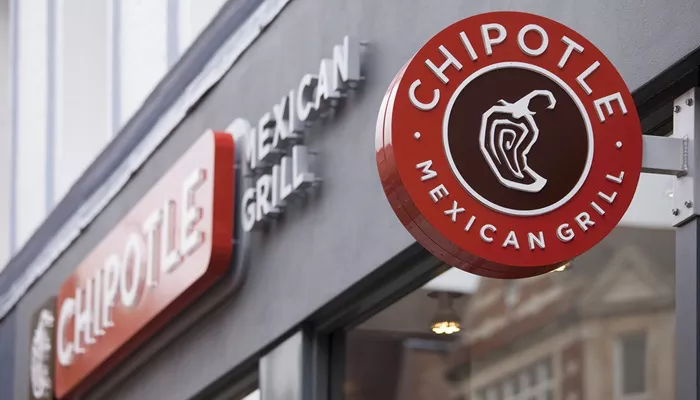For years, Chipotle has been at odds with the agricultural community. As an agricultural journalist closely connected to farming, I’ve observed with concern how the fast-food chain’s actions have often been detrimental to farmers. From its strong anti-GMO stance—except for high-profit items like sodas and cheese—to its controversial Scarecrow and Farmed and Dangerous campaigns, Chipotle’s marketing has historically disrespected agriculture.
The company’s messaging has frequently painted conventional farming in a negative light, alienating hardworking farmers who feed the nation. This approach quickly drew backlash from the agricultural community, which saw Chipotle as a company hostile to modern farming practices and more interested in fear-based marketing than in understanding the realities of agriculture.
The Scarecrow campaign, in particular, was a stark example of this negative portrayal, depicting agriculture as sinister and harmful. Chipotle’s emphasis on non-GMO ingredients and organic labels often seemed condescending and misinformed, contradicting scientific consensus on food safety. It appeared that Chipotle was more focused on capitalizing on consumer fears than on genuinely engaging with the complexities of farming.
Recently, however, there has been a noticeable shift in Chipotle’s approach. This change became evident after I publicly criticized the company for not participating in a beef event. My comments led to discussions with Chipotle’s team, revealing a softer stance towards agriculture.
One significant development is Chipotle’s new partnership with The Ohio State University (OSU). The fast-food chain has launched marketing campaigns featuring the OSU football team, showcasing how athletes use Chipotle for their nutrition.
Additionally, Chipotle has established a four-year scholarship for a student in OSU’s College of Food, Agriculture, and Environmental Sciences.
This move marks a departure from Chipotle’s previous antagonistic marketing strategies and appears to be a genuine effort to support the agricultural community. Chipotle reports that Ohio State is among the top five universities consuming the most Chipotle, particularly among athletes. To further this partnership, Chipotle is offering every scholarship and walk-on student athlete a customized card for one free Chipotle entrée per week during their athletic seasons.
Chris Brandt, Chipotle’s Chief Brand Officer, stated, “Typically, only a few star athletes secure NIL deals and brand partnerships, but we wanted to reward all Buckeyes with real ingredients to support their pursuit of academic and athletic excellence.”
This alignment with OSU and investment in agricultural scholarships could signal a positive shift. Chipotle’s focus on “real food, real ingredients” and its connection to sports might help reposition the brand. It seems the company is moving away from its anti-GMO, anti-conventional farming stance, aiming to be seen as a supporter of good food and health, despite some lingering elements of its previous messaging.
However, caution is warranted. While Chipotle’s marketing is now less offensive, it still subtly judges conventional farming practices. Many farmers, regardless of their methods or labels, are responsible stewards of the land and produce high-quality food. Chipotle’s softened marketing does not necessarily equate to superior farming or food safety.
Previous critiques of Chipotle’s marketing tactics likened them to “pouring gas on a dry forest, then years later planting a few saplings and hoping to be seen as tree-friendly.” The threats to farmers and negative perceptions of agriculture that Chipotle helped create are not easily forgotten.
As a critic of Chipotle, I remain cautious but hopeful about their new direction. The partnership with OSU and support for agricultural students are positive steps, and if Chipotle continues this approach, it could foster a more constructive relationship with the farming community.
Looking ahead, Chipotle’s future relationship with agriculture may face new challenges. Brian Niccol, the current CEO, is set to transition to Starbucks on September 9. Niccol’s departure raises questions about the future direction of Chipotle. His leadership saw a reduction in the company’s aggressiveness towards agriculture, which might explain his exit. It remains to be seen if his departure will lead to further changes in Chipotle’s strategy or if it will impact Starbucks, which also faces its own sustainability challenges.
Niccol’s tenure at Chipotle has been controversial. With a salary reportedly around $100 million annually and frequent private jet use, his lifestyle contrasts sharply with Chipotle’s sustainability messaging, raising doubts about the brand’s commitment to reducing its environmental impact.
As Niccol moves to Starbucks, it will be crucial to watch whether Chipotle continues its more inclusive marketing or if his departure signals a shift back to old strategies. Similarly, Niccol’s approach at Starbucks could reveal whether his public messaging evolves while underlying contradictions persist.
Given Chipotle’s problematic history with agriculture, it’s understandable to approach their new stance with skepticism.
While their current marketing may be more refined, it remains driven by profit motives. The agricultural community deserves genuine respect and support from food brands. As developments unfold, we’ll closely observe whether Chipotle and other companies will truly support the farming industry and its future.


